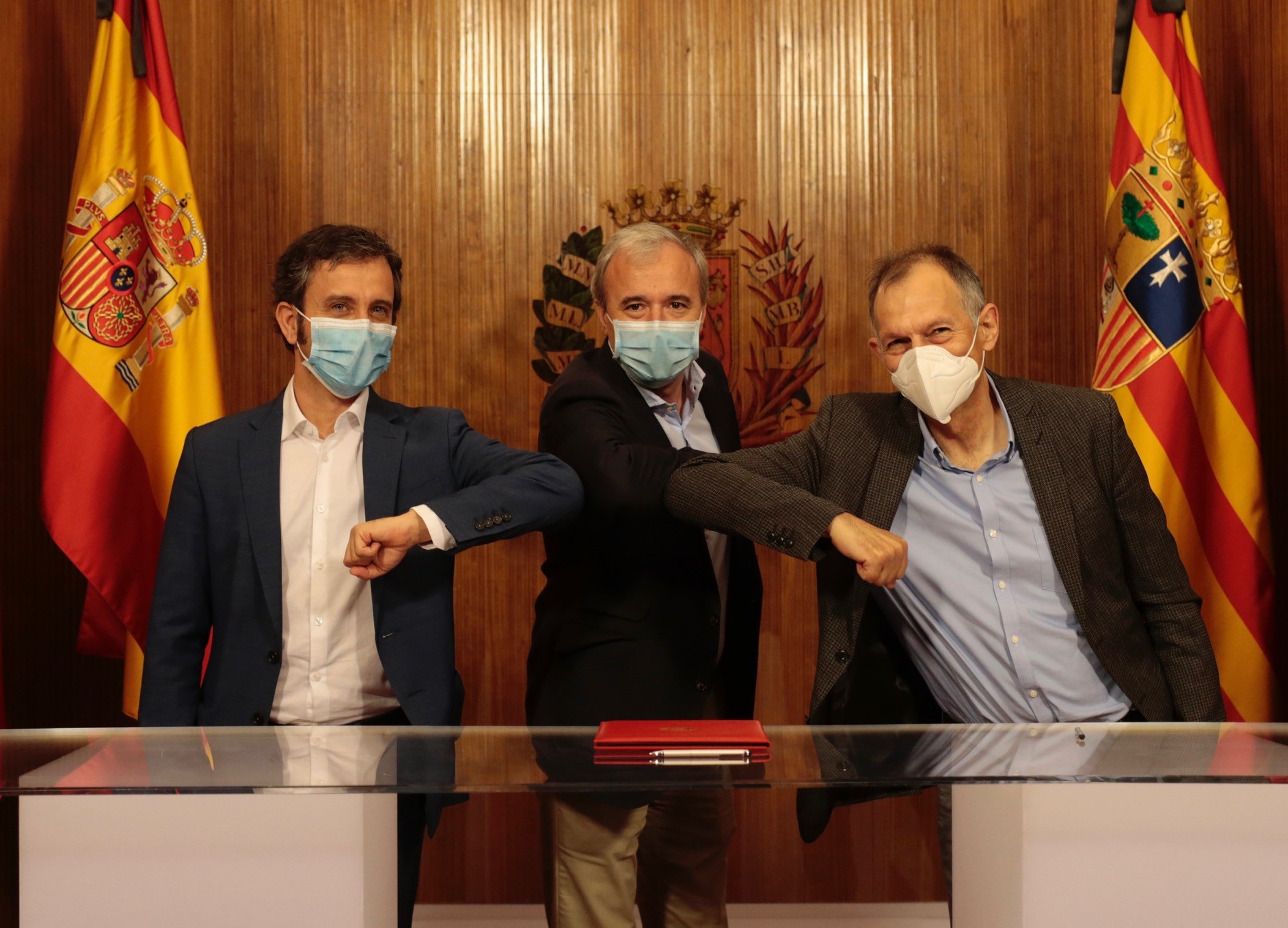
Zaragoza will host the first "solar neighborhood” of Spain

A new agreement signed by the City of Zaragoza Council, EDP and ECODES will involve an investment of 200,000 euros and will offer neighbors and local business cheaper and renewable energy, with special attention to vulnerable families
EDP and ECODES together with the Zaragoza City Council have signed an agreement to develop the first collective self-consumption facility in Spain that will allow the shared use of renewable energy with a solidarity approach. It will be through an innovative concept of distributed energy generation: the "Solar Neighborhood", “barrio solar” in the original Spanish term. This experience of social innovation will later be extended to other cities and towns in Spain.
The first project for Barrio Solar in Zaragoza will involve the investment of € 200,000 and the commissioning of a photovoltaic installation on the roof of a municipal building to offer residents and local businesses cheaper and renewable energy.
The installation will consist of 300 panels with an installed power of 100 KWp, necessary to produce 150,000 kilowatt hours per year. The solar neighborhood will avoid emissions into the atmosphere of almost 40,000 kilos of CO2 per year, it being a greenhouse gas. In other words, the solar neighborhood produces a positive impact on air quality that equals that of 3,000 new trees.
The experience is due to begin by summer with the forecast of having the plant up and running in autumn. Neighbors will be able to join their Solar Neighborhood without having to make any kind of prior investment or installation in their houses, as long as they are less than 500 meters away from the municipal building where the solar cells will be.
The service will be available to both EDP B2C customers and other companies by contracting a service with a monthly fee, an option more convenient in many cases than having to make an early investment. Participation in Barrio Solar will save up to 30% on the electricity bill for about 150-200 homes and small businesses. Of these families, 10% will be vulnerable families, who will be exempt from paying their monthly fee. It is, therefore, a collective and solidarity experience, since part of the energy generated by the solar neighborhood will serve to reduce the energy bills of these homes with fewer resources.
Moreover, the initiative has an important social dimension because it includes, especially for the most vulnerable families, an energy audit of their homes, workshops on energy efficiency, energy billing and self-consumption and implementation of energy saving measures in their homes. The collaboration of Fundación EDP will allow, in addition to technical audits, the processing of energy certificates, technical inspections or the replacement of basic equipment (such as LEDs, radiators, boilers, etc.), among other actions. In this way, the project contributes to improving the quality of life of people in the areas where EDP carries out its activity, granting access to affordable and clean energy as established by SDG7 of the Sustainable Development Goals that the UN has set within its 2030 Agenda.
To be part of this solar neighborhood, interested residents must sign up on the web, to later participate in a personalized study. In addition, the “Barrio Solar Office” will be created to develop different initiatives to raise awareness, education, and offer environmental and energy advice open to all residents of the area.
The results of this pilot will allow the solar neighborhoods to be extended to other districts of the city. The plan is to create solar neighborhoods within large cities and also take them to smaller municipalities that are part of what is known as ‘empty Spain’ (la España vaciada), something that represents a very important commitment to innovation in country areas.
EDP and ECODES, together with Fundación EDP and the Schneider Electric Foundation, will finance and develop this trial experience of solar neighborhoods in whose execution the Departments of the Environment, Urban Planning and Social Action of the Zaragoza City Council will also participate.
The Mayor of Zaragoza, Jorge Azcón has highlighted "the ambition" of a project like the Solar neighborhood, which "is based on three basic pillars: environmental improvement, citizen participation and social solidarity, with the aim of making a better city for everyone, that offers more quality of life to its neighbors”. Azcón emphasized that the Solar Neighborhood “places Zaragoza as the modern, committed and supportive city that it is, in line with the projects that we want to promote from the municipal government: a city at the forefront of environmental and social improvements, which incorporates for this, the most advanced innovations and projects and that has the vocation of being an example to follow in the national sphere ”.
“EDP Solar wants to continue innovating and looking for new paths and alliances in the world of renewable energy. That is why now we join ECODES and the Zaragoza City Council in an innovative, supportive project that aims to open the way to collaborative energy. A project that will allow residents to benefit from solar energy from what we have called the Solar Neighborhood, and in which we will pay very special attention to residents in vulnerable situations. Solar energy is the cheapest source of energy and we are making the decision to provide our neighborhoods with a simple and clean energy solution that will accompany us for more than 30 years,” said Gabriel Nebreda, CEO of EDP Solar.
Víctor Viñuales, CEO of ECODES, stated: “ECODES works several lines to achieve a neutral, responsible and inclusive economy, but due to its current status, proximity and social importance, it would highlight the challenge of contributing to achieving access to energy clean and affordable by promoting shared self-consumption in cities without leaving anyone behind. For this, it is essential to create multi-sector alliances for the development of social innovation projects with the support and collaboration of many people, companies, such as EDP Solar, and institutions, such as the City Councils”.